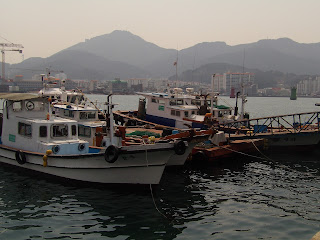Today marks the anniversary of the death of composer David Lloyd-Howells who died in
Abergavenny, Wales,
on 14 May 2015. I'd known him since 1977 when we both started as undergraduates at the Music Department at Cardiff University. David was an original and a bit intimidating to other undergrads with his intense engagement with music; he was already thirty-five years old and ravenous to learn. At the time I knew he was a composer; now I know that he was a composer with an already highly developed technique who wrote some of his best and most ambitious pieces during that period (around 1977-82).

David usually showed up to lectures in a suit and bow tie (rather like the picture above) and engaged with music with terrific intensity. A coffee-break at college might typically open with something along the lines of: "The question is, not, 'what is music?' but, 'why is music?' It was easy to send him up; we also didn't understand or know how he had secured a musical education against all odds, traveling through the USA and Canada in the early 1960s in the process. Here are a couple of photos taken at that time.
And that background didn't equip him for dealing with the politics of negotiating a career in music. He didn't stroke egos and when things didn't happen or go right, he said what he thought. But what he said was born out of a passionate belief in his art and a frustration if his work didn't bear fruit. And he worked at composition with an intensity that would put most of us to shame. Here he is at a party I gave in January 1983, in characteristic full flow.

One of the pieces I still think is his most impressive is one I had many hours of fascinating discussions about around 1982 at the time he was writing it. Choirs and Dialogues for 15 solo strings was the last of his pieces written in (more or less) conventional notation - a work of great complexity lasting some 50 minutes or so and perhaps his finest achievement. After this point David decided that the future lay in music technology and gradually built up his own personal studio. These days when access to technology is so much easier, it's difficult to imagine the leap for someone to stop composing and put aside for nearly five years in order to learn and acquire the necessary equipment and training.
He was hard to deal with. His devotion to what he did and single-mindedness meant that there was never any small talk. Everything was pitched at the highest level. Alas, the attention to detail he applied to his musical texts was not reflected in his literary efforts, letters to papers and individuals (which, unfortunately, was mainly most that the music profession knew of him).
At the time of his death he had been engaged on writing an opera about the 1966 Aberfan disaster which would have been scored for singers with a complex electronic soundscape. He never got to the point of pulling it all together and it now exists in many box files of sketches and various soundfiles. This summer I will be sending his manuscripts and electronic material to the National Library of Wales who have agreed to take the estate. His not inconsiderable electronic studio is now housed in the Royal Welsh College of Music & Drama in Cardiff where a new generation of students use it.
I've set up a Soundloud page where recordings will be posted - do listen to the wonderful 2nd Piano Sonata in a BBC recording made by Martin Jones in 1980.
https://soundcloud.com/david-lloyd-howells
For more details of David Lloyd-Howells's work, email Peter
Reynolds at David.Lloyd.Howells.Music@gmail.com
There is also a page devoted to his music at
Musicweb International



















































